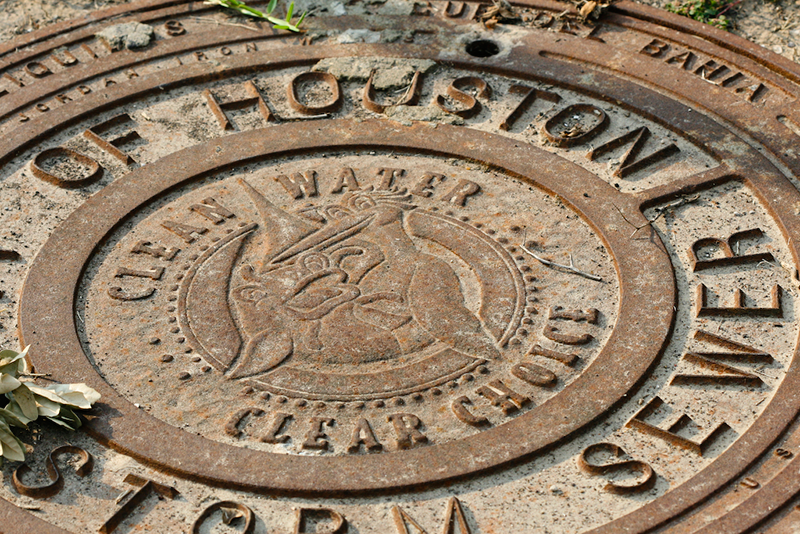Recently, the Houston Chronicle published an article about a Municipal Utility District, Fort Bend County MUD 187, and the dissatisfaction of some homeowners that the MUD might issue bonds, which they believe could raise their property tax rates. The article alluded that MUDs represent a developer-run local government agency run amok, with little oversight and unchecked taxation power.
What this article fails to provide is the overall economic benefits that MUDs provide, and the reason for their existence in the first place. It also doesn’t explain who truly bears the cost of the initial infrastructure – the developers.
All development, in an economically advanced society, needs to have access to safe water supply, sanitation services, and drainage infrastructure for each household or business. In rural areas, on-site wells, septic systems, and on-site detention and permeable surface typically satisfy this need for households because residential lots are usually large enough to adequately accommodate these facilities.
Advertisement
Conventional suburban development doesn’t have this luxury, so common systems shared by all the property owners must provide such services. These common systems are not free to construct; in fact, they comprise a very significant component of development costs.
MUDs successfully facilitate an economical, fair and efficient provision of this infrastructure in several ways.
- They properly allocate the financial risk to the developer. MUD bonds don’t fund the water / sewer / drainage infrastructure; it is the DEVELOPER that funds these items, up front. MUD bonds are a means of paying back the developer for the common (public) portions of this infrastructure at a later date when enough property value has been generated to adequately fund debt service through property taxes. Thus it is the developer’s risk—fail to successfully execute and market the development, then there won’t be a payback through bonds.
- The fact that MUDs reimburse developers for their risk-taking expenditures creates financial feasibility for new development that might not have otherwise existed. If there were no future reimbursement, a developer would have to either convince a nearby city to annex the project and fund the infrastructure (which may not be considered very fair to that city’s existing taxpayers), or recover the up-front infrastructure costs by increasing the sale prices of the homes or lots. In the latter case, this means that new homes would be more expensive, and some entry-level home markets might not be served at all.
- In the city annexation scenario, a developer has to wait for municipal approval processes to play out and deal with political risk. These also add cost, plus they slow down the provision of housing, which can also lead to increased home prices in a strong-demand market, decreasing affordability. Developments in MUDs still have to meet infrastructure and subdivision standards and receive consent from the city whose extraterritorial jurisdiction (ETJ), so it’s not as if the city has zero control to ensure a quality development, even if annexation is not intended in the near term.
- Ultimately, of course, the incidence of MUD taxes (the group that truly bears the cost) falls on the property owners within the district. And that’s as it should be. One of the great economic “tests” of taxes is whether those bearing the incidence are also those who receive the benefits of the projects or services funded, and MUDs meet this test. Property owners outside the MUD bear no tax burden from the district’s water / sewer / drainage infrastructure and services at all, unless the district is annexed by a city and the MUD dissolved.
- While MUDs, like any government entity, need to abide by good government and open meetings rules and be subject to oversight, the taxation issue discussed in the Chronicle article neglected to mention that there is a natural check on excessive MUD taxation, particularly in districts (such as the Del Webb Sweetgrass community highlighted) where new home development is still occurring: the market. Raise taxes too high, and the developer and builders will have difficulty marketing lots and homes at desired pricing levels, because the end consumers—the home buying public—won’t find it palatable.
MUDs contribute to good planning and good development and help maintain housing affordability. The GHBA and other associations in Houston are working to provide facts to the public, city and county staffs, and political leaders to protect this valuable tool which greatly affects our development and homebuilding industry.
ABOUT THE AUTHOR
 Steve Spillette, president of Community Development Strategies, is an urban development strategist with diverse experience in real estate and urban planning. A native Houstonian, Steve joined the San Francisco office of the national real estate consulting firm Economics Research Associates after completing his undergraduate degree at Stanford. He assisted in performing a variety of market studies and financial pro-forma analyses for both private and public clients related to single family and multifamily residential, retail, office, industrial, hotel, meeting facilities, and golf, as well as significant public sector studies related to major investments and strategic initiatives. He focused on transportation and land use issues in both academic and professional work while attending the Community and Regional Planning program at the University of California at Berkeley.
Steve Spillette, president of Community Development Strategies, is an urban development strategist with diverse experience in real estate and urban planning. A native Houstonian, Steve joined the San Francisco office of the national real estate consulting firm Economics Research Associates after completing his undergraduate degree at Stanford. He assisted in performing a variety of market studies and financial pro-forma analyses for both private and public clients related to single family and multifamily residential, retail, office, industrial, hotel, meeting facilities, and golf, as well as significant public sector studies related to major investments and strategic initiatives. He focused on transportation and land use issues in both academic and professional work while attending the Community and Regional Planning program at the University of California at Berkeley.
Upon his return to Houston, Mr. Spillette joined the Uptown Houston Improvement District as Director of Planning and Development. He conducted the District’s economic research pertaining to office, retail, hotel, and residential markets plus public tax revenue generation, packaging his analysis in District marketing and public information documents. He also was responsible for creating and managing the District’s annual operating budget and monitoring District property values for revenue forecasting purposes. He was instrumental in creating the planning documents leading to the creation of the Uptown Houston Tax Increment Reinvestment Zone.

